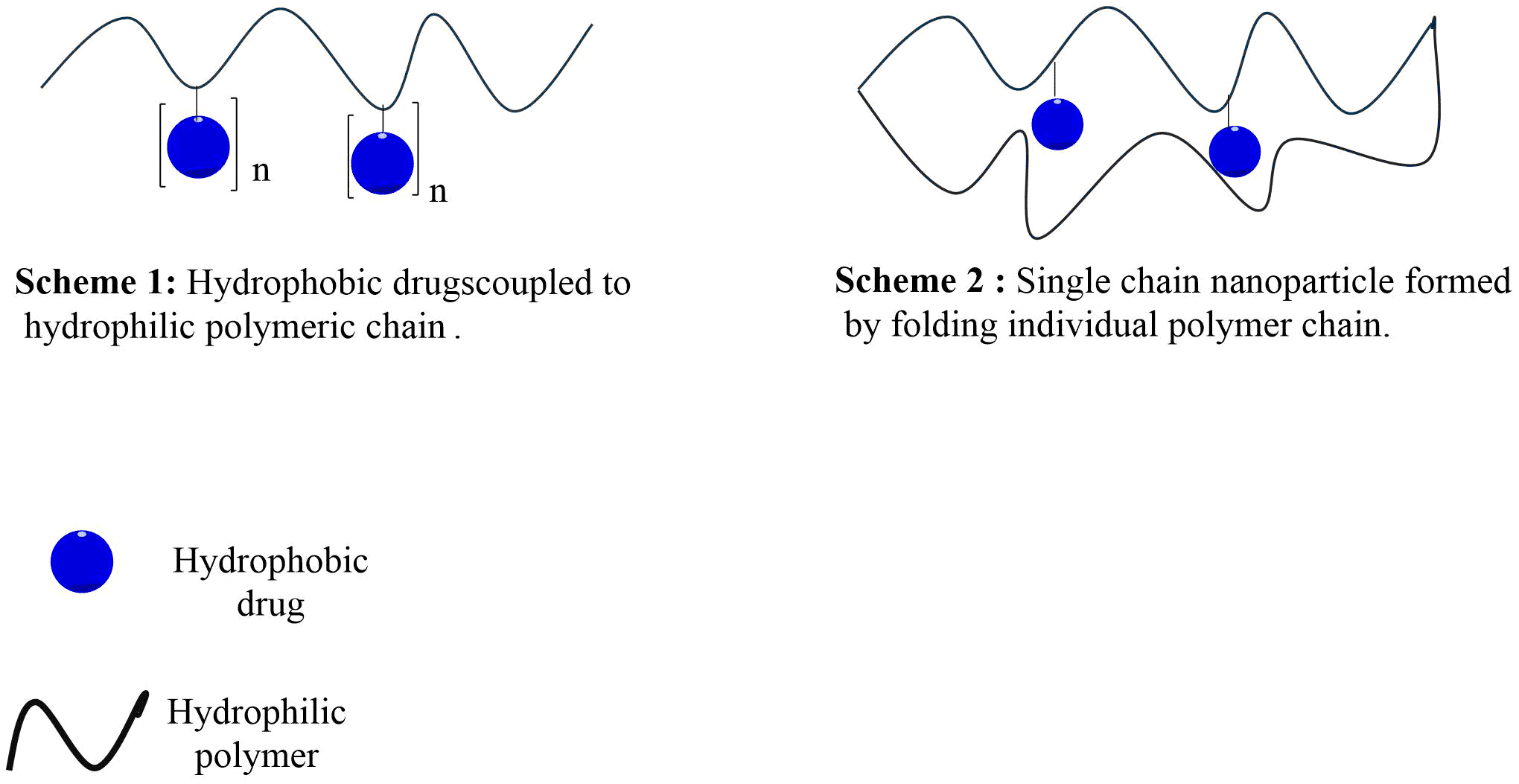
Single-chain nanoparticles as polymeric drug carriers
Polymeric systems including micelles and vesicles have an important role in the development of drug delivery systems (DDS) that are capable of controlled and sustained release of drugs in predetermined doses. However, such polymeric DDS also suffer from several limitations; one of the biggest challenges is to control the drug loading. In general, increasing the average number of hydrophobic drugs, which are covalently bound to the polymeric carriers, often makes the polymer too amphiphilic, leading to self-assembly and aggregation of large polymeric structures with uncontrollable sizes. These uncontrolled dimensions can severely limit the penetration ability of the DDS into diseased tissues.
To address this challenge, we develop DDS based on single-chain nanoparticles with sizes under 30 nm; the small size of these particles will allow deep penetration into diseased tissues and cell membranes, therefore, they can be a very effective system for the delivery of drugs to specific sites in the human body, with minimal side effects. Our design is based on tri-block copolymers that have an inner hydrophilic block and two hydrophilic side-blocks that are separated by drug binding sites (scheme1). This modular molecular design is envisioned to offer the ability of the hydrophilic blocks to warp around the hydrophobic drugs and fold into single-chain nanoparticles (scheme2). This unique architecture should prevent the process of aggregation into larger polymeric structures that may have poorer penetration as often reported for many polymeric assemblies.

Powered by Eventact EMS